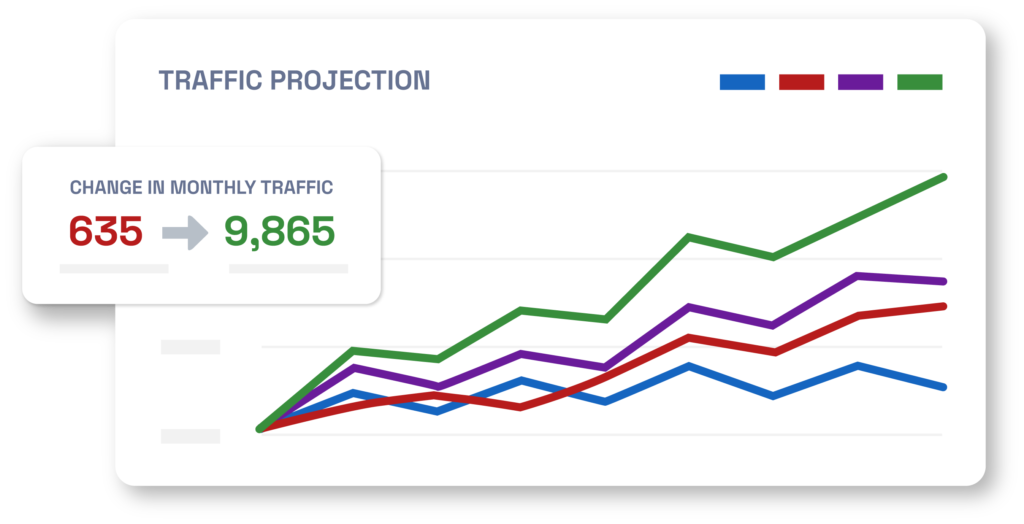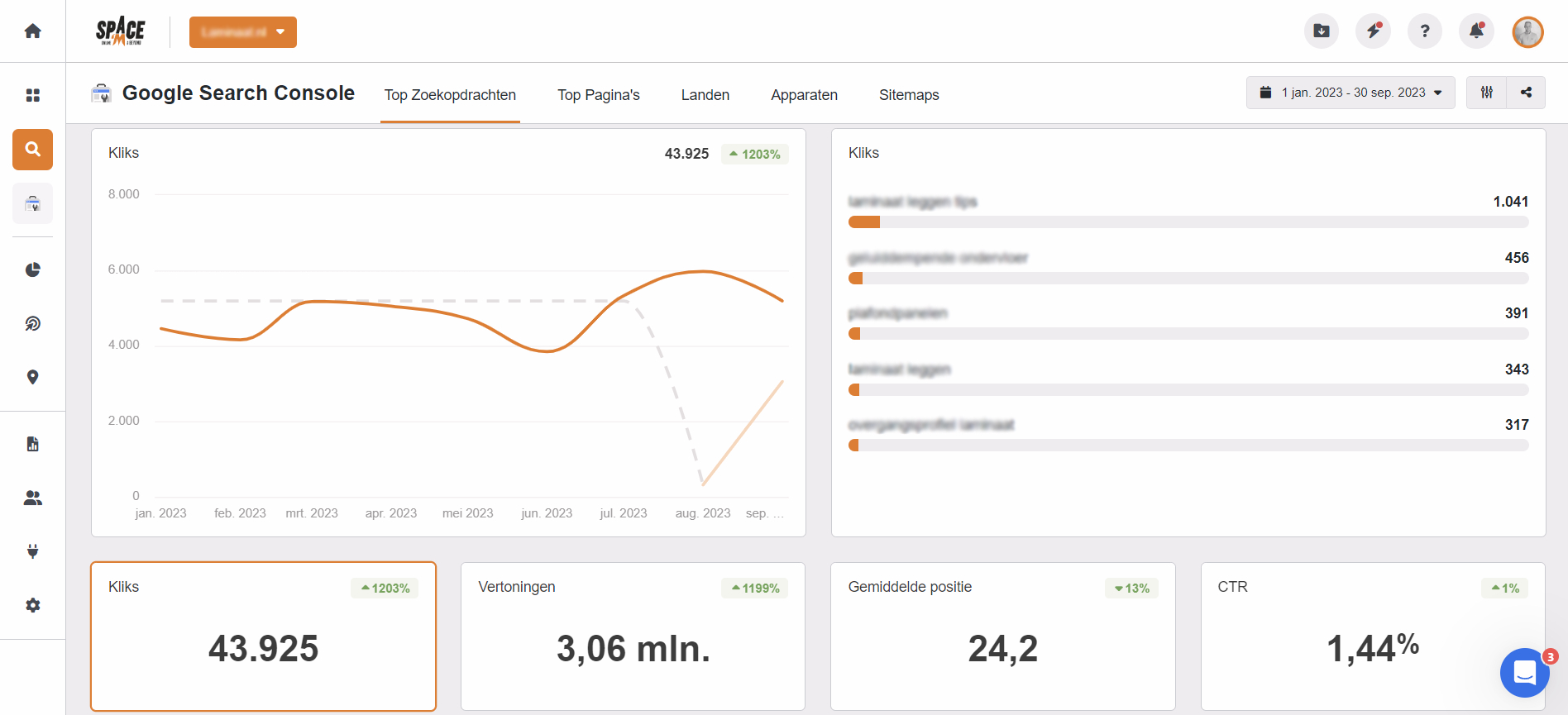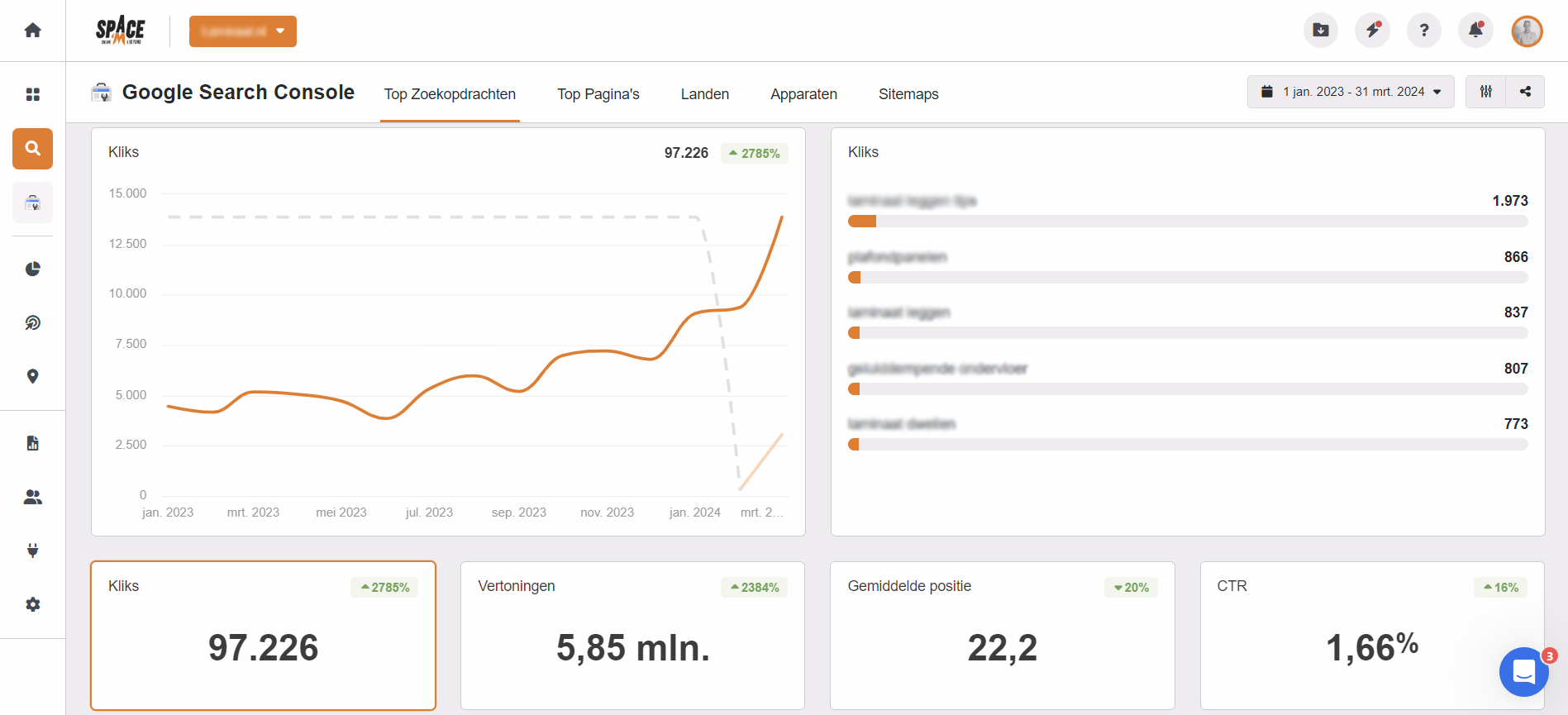Searching for effective ways to improve your fintech company’s online visibility? This guide will dive into specialized SEO fintech strategies that can enhance your search engine rankings, drive organic traffic, and attract more customers to your website.
Key Takeaways
- A successful fintech SEO strategy involves thorough keyword research, on-page optimization, and technical SEO practices to improve search engine rankings and drive organic traffic.
- Creating high-quality and engaging content, such as blog posts, whitepapers, and infographics, establishes fintech companies as credible sources and improves SEO performance.
- Continuous monitoring and updating of SEO strategies, complemented by link building and enhanced user experience (UX), ensure sustained growth and competitiveness in the fintech industry.
Understanding Fintech SEO
Search engine optimization (SEO) is the practice of improving the discoverability of web pages on search engines like Google for specific keywords. The ultimate goal is to increase organic traffic from users who might not have heard of your business before. The fast-paced nature of the fintech industry makes SEO particularly important, necessitating frequently updated strategies for maintaining relevance.
Fintech SEO involves implementing specific SEO strategies designed for the financial technology sector. These strategies are customized to meet the unique needs and challenges of the industry. It combines elements of traditional financial services with cutting-edge technology, making financial services more accessible and affordable. Due to the complex nature of fintech, it’s vital to understand your audience and their search behaviors. This understanding helps in crafting an effective SEO strategy that can boost search engine rankings and drive more leads and customers to your website.
A successful fintech SEO strategy can significantly elevate a company’s online visibility. It’s a strategic fit for fintech companies because potential customers are actively searching for fintech solutions. Additionally, an SEO strategy offers a cost-effective, long-term solution in contrast to other marketing methods. This makes it a valuable investment for businesses seeking sustainable results. Website optimization for search engines can elevate your fintech business’s prominence in the fiercely competitive industry.
Grasping the subtleties of fintech SEO and executing a successful SEO strategy can significantly improve organic traffic attraction and search ranking enhancement. Special considerations, such as frequent regulatory changes and high competition, make it imperative to stay ahead of the curve with continuously updated SEO strategies.
Key Elements of a Successful Fintech SEO Strategy
A successful fintech SEO strategy hinges on several key elements that work together to enhance your online presence. SEO can be broadly divided into three main categories: on-page optimization, technical SEO, and link building. Each of these components plays a vital role in ensuring that your fintech website ranks higher in search engine results pages (SERPs).
First and foremost, a robust SEO strategy helps fintech businesses stand out in a crowded market by improving website rankings and driving traffic. It’s important to understand that fintech SEO is not just about ranking high, but about capturing the right audience with high-intent searches. This involves thorough keyword research, optimizing on-page elements, and ensuring technical aspects of the website are in order.
The upcoming subsections will explore the critical components of a fintech SEO strategy in greater depth, including comprehensive keyword research, on-page optimization techniques, and technical SEO best practices. By mastering these areas, you can create a solid foundation for your SEO efforts and ensure sustained growth and visibility in the fintech industry.
Thorough Keyword Research
Comprehensive keyword research forms the foundation of any victorious fintech SEO strategy. It involves identifying the specific keywords and phrases that your target audience uses when searching for fintech solutions. Given the intricate terminology in fintech, targeting the right keywords can be challenging but is essential for driving organic traffic.
One effective technique is competitor keyword analysis, which can provide valuable insights into the keywords that generate successful traffic for other fintech companies. Additionally, tools like Google Suggest can help uncover popular keywords related to your industry. Understanding search intent is crucial; you need to know whether users are looking for information, comparing products, or ready to make a purchase.
Conducting thorough keyword research allows you to craft content that captures high-intent, bottom-of-the-funnel traffic, while also attracting potential customers at the initial stages of the sales funnel. This dual approach ensures that your SEO efforts are aligned with the needs and interests of your target audience, ultimately boosting search traffic and improving search engine rankings.
On-Page Optimization Techniques
To enhance the visibility and relevance of your fintech website, on-page optimization techniques are indispensable. This involves optimizing titles, meta descriptions, and URL structures to ensure they accurately reflect the page content and include relevant keywords. Descriptive and keyword-rich URLs can significantly enhance your website’s search visibility.
Another important aspect is content siloing, which involves organizing and linking related content into topical clusters. This not only improves user navigation but also signals to search engines the thematic relevance of your content. Structured data markups can also lead to rich snippets in search results, which can improve click-through rates and online visibility.
Advanced techniques such as using canonical tags to specify the preferred version of duplicate content and creating comparison pages that highlight the strengths of your offerings can further enhance your on-page SEO. By implementing these on-page optimization techniques, you can ensure that your website is not only user-friendly but also search engine-friendly, leading to better search engine rankings and increased organic traffic.
Technical SEO Best Practices
Technical SEO entails backend website optimization to boost its crawling, indexing, and overall search engine performance. It works to improve website visibility and accessibility to search engine crawlers. Ensuring that your website is optimized for search engine crawlers is key to technical SEO. This includes improving site speed, crawlability, and addressing core web vitals.
Website speed is a critical factor in SEO, as slow-loading sites can lead to higher bounce rates and lower search engine rankings. Tools like Google PageSpeed Insights or GTMetrix can help identify and fix issues that slow down your site. Mobile optimization is equally important, given that over 60% of global website traffic comes from mobile devices. Ensuring a mobile-friendly website can significantly boost your SEO performance.
Regular technical SEO audits are essential for identifying and fixing issues that could hinder your website’s performance on search engines. Core Web Vitals, such as page loading speed and visual stability, are critical metrics for assessing site performance and should be prioritized. By addressing these technical aspects, you can create a solid foundation for your fintech website, ensuring it is both user-friendly and search engine-friendly.
Creating High-Quality Content for Fintech SEO
For fintech SEO, generating high-quality and engaging content is vital. It helps build and maintain user trust, which is especially important given the sensitive nature of financial services. High-quality content not only attracts organic traffic but also improves search engine rankings by establishing your fintech company as a credible and authoritative source.
Fintech companies need to develop a comprehensive content strategy to achieve success in SEO. It can help them improve their online visibility and attract more potential customers. This involves creating various types of content, such as:
- Blog posts
- Articles
- Whitepapers
- Infographics
These types of content cater to different stages of the sales funnel. Engaging and informative content can keep visitors on your site longer, increase conversion rates, and satisfy search engine algorithms.
Presenting data in creative, engaging formats, such as infographics or data-rich studies, can also help gain backlinks and enhance your site’s SEO. By consistently producing expert content that addresses user queries accurately and uniquely, you can establish your fintech company as a thought leader in the industry, driving more organic traffic and improving search engine rankings.
Building Authority Through Link Building
As it aids in establishing authority and credibility, link building is an essential component of fintech SEO. Backlinks, which are links to your website from other reputable websites, can significantly impact search engine rankings. High-quality backlinks from reputable sources can enhance your fintech company’s credibility and SEO performance.
To earn high-quality backlinks, fintech companies should focus on:
- Creating valuable content
- Engaging in strategic outreach
- Identifying and reaching out to industry influencers, bloggers, and other websites that might be interested in linking to your content
- Focusing on quality over quantity in link-building campaigns
Tools like Google Search Console can help analyze internal and external backlink data to improve your site’s SEO. Competitor analysis can also provide insights into effective link-building strategies. Although gaining backlinks can be time-consuming, the effort pays off by significantly improving your search engine rankings and establishing your fintech company as an authority in the industry.
Enhancing User Experience (UX)
Boosting the user experience (UX) on your fintech website is vital for enhancing engagement, conversion rates, and SEO performance. A clear and organized site structure can significantly enhance user experience and SEO. A well-designed, user-friendly website can impact visitor engagement and conversion rates positively.
Key UX elements to focus on include:
- Navigation
- Content
- Visual design
- Functionality
A smooth, intuitive UX can guide users towards taking desired actions, such as creating an account or making transactions. Positive user experiences make visitors more likely to return, reducing bounce rates and improving your site’s SEO performance.
Given the significant portion of internet traffic that comes from mobile devices, ensuring a mobile-friendly design is essential. The Experience report in Google Search Console can help examine user experience metrics, such as page loading speed and mobile usability, to identify areas for improvement. By prioritizing UX, you can create a more engaging and effective fintech website that drives better SEO results.
Monitoring and Improving SEO Performance
Continuously monitoring and enhancing SEO performance ensures your fintech website’s competitiveness and efficacy. Regularly analyzing your SEO strategies and making necessary adjustments helps maintain the effectiveness of your tactics. This consistent monitoring allows you to identify which strategies are working and which need improvement.
Tools like Google Search Console and Google Analytics are invaluable for tracking SEO performance. These seo tools provide real-time data on organic traffic, keyword rankings, and index coverage. The Performance Report shows metrics like total clicks, total impressions, average click-through rate (CTR), and average position, offering actionable insights into your SEO efforts.
By using these tools, fintech companies can ensure their web pages are properly indexed, identify and fix any crawlability issues, and track user engagement metrics. Regular SEO audits and performance tracking help fintech businesses stay ahead of the competition and continuously improve their online visibility and search engine rankings.
Overcoming Common Challenges in Fintech SEO
The fintech industry faces unique SEO challenges due to its rapid evolution and complex regulatory environment. Frequent regulatory changes can make crafting a compliant SEO strategy difficult, requiring continuous updates to stay compliant with legal and governmental guidelines.
The high level of competition in the fintech market also demands a unique and well-planned SEO strategy to stand out. Fintech companies must navigate intricate terminology, which can make targeting the right keywords challenging. Building user trust through high-quality and credible content is crucial due to the sensitive nature of financial services.
Staying abreast of industry changes and adapting your SEO strategies accordingly is key to overcoming these challenges. Here are some tips to help you stay ahead in the fintech industry:
- Regularly update your content to reflect the latest regulatory changes
- Focus on creating valuable, trustworthy content to build credibility
- Employ advanced SEO techniques and tools to gain a competitive edge
By following these strategies, you can improve your search engine rankings and stay ahead in the highly competitive fintech industry.
How to Get Started with Fintech SEO
Initiating fintech SEO necessitates a clear comprehension of your target audience and competition. Identifying your ideal client profile and target sectors is crucial before diving into keyword research or on-page optimization. This foundational step ensures that your SEO efforts are aligned with the needs and behaviors of your potential customers.
Begin your fintech SEO strategy with a thorough technical audit to ensure your site is being crawled and indexed properly by Google. This audit helps identify any technical issues that could hinder your SEO performance and provides a solid foundation for further optimization. Hone your keyword strategy by incorporating relevant, industry-specific keywords into your on-page elements.
Building a solid SEO foundation involves several essential steps, including performing keyword research, optimizing on-page elements, improving site speed, and creating high-quality content. While you can execute a fintech SEO campaign independently, it often requires a team of specialists, including a technical SEO expert, a niche content writer, and a web developer. By following these steps, you can effectively implement and maintain a successful fintech SEO strategy.
Partnering with Fintech SEO Agencies
Collaboration with specialized fintech SEO agencies can prove immensely advantageous for executing effective SEO strategies customized for the financial industry. These agencies understand the unique nuances and regulatory environment of the fintech sector, providing tailored digital strategies that align with your specific business objectives.
Fintech SEO agencies offer a range of services, including link building, technical SEO, and content marketing, to help fintech companies achieve their online growth goals. By employing proven fintech SEO strategies specifically tailored for the fintech business sector, these agencies can significantly improve your search engine rankings and online visibility.
Successful collaborations with fintech SEO agencies have helped many fintech businesses stand out in the highly competitive market. By leveraging the expertise and specialized knowledge of these agencies, fintech companies can implement a solid SEO strategy, attract organic traffic, and achieve sustainable growth.ur website remains competitive and accessible to a broader audience.
In what other industries does Space’M Online SEO?
Space’M Online extends its SEO expertise across a diverse range of industries beyond finance, legal, insurance, and e-commerce. Our team is adept at crafting tailored SEO strategies for sectors such as healthcare, education, real estate, and technology.
By understanding the unique challenges and opportunities within each industry, we help businesses enhance their online presence, drive targeted traffic, and achieve sustainable growth. Whether you’re a local business or an international enterprise.
Space’M Online is committed to delivering results that align with your specific industry needs and goals, take a look at the following industry page to get more information:
- Lawyer SEO agency
- Banking SEO agency
- SaaS SEO agency
- Startup SEO agency
- Real estate SEO agency
- Architect SEO agency
- Oil and gas SEO agency
Frequently asked questions
We recognize that you might have inquiries about our SEO services for fintech companies and our modus operandi. Here are some frequently asked questions to help clarify our approach and the benefits of partnering with Space’M Online:
What is fintech SEO?
Fintech SEO is the process of optimizing websites in the financial technology industry to improve their visibility in search engines and drive organic traffic.
Why is keyword research important in fintech SEO?
Keyword research is important in fintech SEO because it helps identify the specific keywords and phrases used by your target audience, allowing you to create content that captures high-intent traffic and improves search engine rankings.
How can fintech companies improve their on-page SEO?
To improve on-page SEO, fintech companies should optimize titles, meta descriptions, and URL structures, organize content into topical clusters, and use structured data markups for better search visibility. These strategies enhance the company’s online presence and visibility to potential customers.
What are the benefits of partnering with a fintech SEO agency?
Partnering with a fintech SEO agency can provide tailored digital strategies, expertise in the financial sector, and proven SEO techniques to improve search engine rankings and online visibility. This can ultimately boost your business’s online presence and attract more potential customers.
How can fintech companies monitor and improve their SEO performance?
Fintech companies can monitor and improve their SEO performance by utilizing tools like Google Search Console and Google Analytics to track organic traffic, keyword rankings, and user engagement metrics, and then making adjustments based on data trends. This helps in optimizing their online visibility and performance.




















